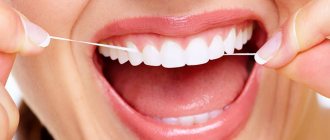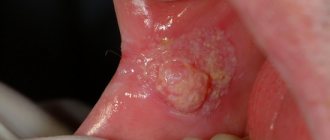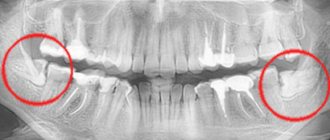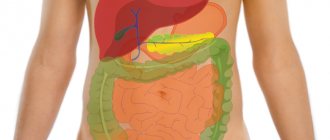Garlic odor from the mouth: proven ways to eliminate it
Bad breath causes anxiety and embarrassment. Because of it, there are difficulties in communicating with others. But Ukrainian cuisine offers a lot of temptations to which we succumb. And only then you have to think about how to eliminate the smell of garlic from your mouth. This is not so easy to do - it is persistent and can appear for several hours, or even days after consuming this product. But it happens that the smell occurs even if garlic was not in the diet. What is the reason? How to remove unpleasant manifestations? Let's get acquainted with the opinions of experts.
Gargling with herbal decoction
For diseases of the oral mucosa, rinsing with infusions and decoctions of medicinal herbs has long been used in folk medicine: along with their anti-inflammatory effect, they have a good deodorizing effect. Chamomile, sage, wild strawberry leaves, calendula, St. John's wort, and mint are especially suitable for these purposes. Usually the herb (separately or a mixture of several types) is brewed at the rate of 1 tablespoon per 1 glass of boiling water, infused, and squeezed. Half a glass of warm infusion is enough for one rinse. It is better to do this after eating and after you have first removed all food debris with a toothpick and then with a toothbrush with paste or powder.
What explains the nature of garlicky breath?
To understand how to eliminate bad breath, you first need to understand the chemical processes in our body that occur when we eat garlic. This product owes its smell to allicin (ester). It is released by the mechanical destruction of garlic cells from the enzyme allinase it contains. During the digestion of the product, volatile sulfur compounds are released, which enter the bloodstream. Through it, these substances penetrate into the lungs, and from them into the larynx and mouth.
How long does the garlic smell last? The most persistent aroma comes from the product in its raw form. If no measures are taken, volatile substances are completely eliminated from the body within 72 hours. First, a characteristic taste is felt in the mouth and a persistent odor emanating from the inside. It weakens gradually. It can be felt not only through the air you exhale, but also through other body secretions, such as sweat.
Provoking factors
Among these factors are malfunctions in the functioning of certain body systems. So, what causes the smell ?
- Disruption of the gastrointestinal tract (GIT), digestive organs.
- Pathologies of the cardiovascular system. For example, profuse sweating (hyperhidrosis) and an unpleasant garlic odor may indicate a heart attack.
- Peptic ulcer disease.
- Stressful situations that lead to exacerbation of gastritis, ulcers, and digestive system disorders. An unpleasant garlic odor is observed in such a situation from only one place on the body.
- Thyroid gland dysfunction.
- Excessive use of medications containing vitamin C or antibiotics.
- Climax.
- The development of infectious diseases, their acute form. Most often, this fetid aroma accompanies tuberculosis.
- Malignant tumors.
Why does your breath smell like garlic even if you haven’t eaten it?
If a person has recently eaten garlic (as an independent product or as part of a meal), then the source of bad breath is clear. Otherwise, you need to find out the reason for its appearance.
Because sulfur compounds enter the bloodstream when garlic is digested, this may explain why newborn babies or patients being fed through a feeding tube may have bad breath. The air we exhale tells a lot not only about what we recently ate, but also about the disorders of our body. What diseases cause a garlic odor? The following pathologies can cause it:
- bacterial diseases of the oral cavity;
- pathological processes in the organs of the urinary system;
- chronic sinusitis;
- disorders of the gastrointestinal tract: gastritis, peptic ulcer;
- pathologies of the respiratory system;
- diseases of the endocrine system, in which other symptoms also appear: sudden changes in mood, irritability, increased fatigue.
The smell of garlic in a child often indicates poor oral hygiene or dental problems, so it is worth taking it to the doctor. Some choleretic drugs can also provoke the problem.
Main symptoms of liver diseases
A variety of symptoms, many of which have a rather characteristic manifestation, will help the doctor to promptly identify the problem and prescribe treatment. However, there remains a danger that some diseases in the early stages are practically asymptomatic. To eliminate the risk of developing the disease and diagnose the liver in a timely manner, gastroenterologists and hepatologists recommend paying attention to some points.
Liver dysfunction can manifest as one symptom or a combination of them, which depends on the specific disease and the presence of associated complications.
Pain and discomfort
Painful sensations are usually concentrated in the right hypochondrium. In some cases, they can radiate to the area between the shoulder blades, separately to the right shoulder blade. Pathology can be assessed based on the type and intensity of pain. For example, minor discomfort with aching pain, which complements the feeling of heaviness, may indicate the presence of an inflammatory process, including that caused by toxins. It is very difficult for the patient to clearly show the place where the pain is concentrated.
Intense and severe pain in the hypochondrium is characteristic of severe inflammation, including purulent inflammation. It is present in cases of stones in the bile ducts, liver injuries. Painful sensations are also typical for hepatic colic, which is caused by the movement of stones in the bile ducts.
There are pathologies that do not manifest themselves as unpleasant sensations. These are indolent processes, such as hepatitis C or cirrhosis of the liver. The patient does not notice them for a long time, which is why liver diagnosis and treatment may be delayed. Often these diseases are detected already in the later stages of development.
Vomiting and nausea
Feelings of nausea and vomiting are quite common with gastrointestinal diseases. If the problem affects the liver, these symptoms will be much more severe.
With the appearance of nausea, problems with appetite begin - it becomes dull or disappears completely. There is an aversion to specific foods, usually high in fat. In some cases, an attack of nausea ends with vomiting, after which relief occurs for a while. An admixture of bile in vomit indicates liver problems.
Manifestation of symptoms in the oral cavity
A characteristic symptom is the appearance of a yellow coating on the tongue. The intensity and color depend on the disease. For example, slight jaundice closer to the tip of the tongue may indicate an early stage of hepatitis. The appearance of a yellow-green coating is characteristic of serious pathologies of the gastrointestinal tract, biliary tract or liver. Stagnation of bile manifests itself in the form of a rich yellow coating. At these stages, tests may be prescribed to check the gastrointestinal tract.
An unpleasant bitterness may also be present. It occurs when bile enters the esophagus. The presence of a pronounced taste may be a symptom of viral hepatitis, liver tumor or cirrhosis, gastrointestinal tract disease or gall bladder. Sometimes bitterness is caused by severe stress and taking certain medications. To accurately determine the disease, doctors prescribe a comprehensive diagnosis of the patient’s body.
In addition to bitterness, a sweetish or “fishy” aroma may appear in the mouth, which is accompanied by constipation or diarrhea, bloating, and vomiting. This symptom indicates problems with the digestive system caused by liver problems.
Increased body temperature
A symptom indicates the presence of a pathogenic agent that the body is fighting. When the temperature rises to 38°C and fluctuates between 37-37.5°C, liver cirrhosis and hepatitis can occur.
In diseases of the biliary tract, the temperature remains at 39°C and above. In this case, the patient experiences twitching of facial and skeletal muscles.
Change in color of urine and stool
Due to the increased volume of bilirubin, characteristic of hepatitis or cirrhosis, the urine acquires a dark tint. When shaken, a rich yellow foam appears in it.
Some diseases are characterized by discoloration of stool, which is accompanied by fever and discomfort in the right hypochondrium. Vomiting may be present.
Changes in skin and mucous membrane color
Due to the accumulation of bile pigments in the tissues, the color of the mucous membranes and skin changes. This may indicate the presence of cirrhosis or hepatitis, especially if there is dark urine and light-colored stool. Yellowness of the skin is present in cholelithiasis. To clarify the diagnosis, the doctor may prescribe additional laboratory tests.
Problems with bile secretion sometimes appear as brown pigment spots with varying degrees of intensity. They usually occur in the groin, armpits or palms of the hands.
Other skin manifestations
An additional symptom that is observed in liver pathologies are spider veins. They usually appear on the back or cheeks. They are caused by metabolic problems and increased fragility of capillary walls. At an advanced stage, the patient immediately develops bruises with slight pressure on the skin.
Autoimmune diseases and hepatitis caused by infection are accompanied by allergic rashes and inflammation. At the next stage, atopic dermatitis and psoriasis may appear.
A characteristic symptom is “liver palms,” in which red spots appear on the feet and palms. They become paler when pressed. When the pressure stops, their color turns red again.
Hormonal changes
Chronic liver diseases cause hormonal imbalance. In this case, patients experience hair loss on the pubis and armpits. Men suffer from testicular atrophy and enlarged mammary glands - this is caused by an excess of female hormones. In women, the volume of estrogen increases, which is why a rash appears throughout the body, PMS becomes very pronounced, and the menstrual cycle is irregular.
Intoxication of the body
Since the liver is responsible for filtering and eliminating toxins from the body, liver damage interferes with these functions. Severe intoxication and accompanying symptoms occur. These include discomfort in muscles and joints, problems with appetite, fatigue and weight loss.
How to quickly get rid of bad breath after eating garlic
If your breath is stale and you will soon need to, for example, leave the house and take public transport, it is important to quickly neutralize the smell. How to interrupt him to feel comfortable? Experts recommend the following products for this:
- Parsley or dill. Fresh greens should be chewed slowly and thoroughly, without drinking any liquid. Flavoring substances will help eliminate bad breath.
- Walnuts or almonds. A handful is enough to neutralize allyl methyl sulfide, which is exhaled after eating garlic.
- Nutmeg. This spice is quite effective in combating bad breath.
- Fresh apple or mint. They contain many phenolic compounds that interact with sulfur and neutralize odor.
- Fresh citrus fruits. They help fix the problem for a short time.
What can you do to cover up the garlic smell if you don’t have anything on hand? Eat a piece of bread. Bakery products almost immediately start the process of oxidation of sulfur-containing esters, therefore reducing the intensity of bad breath.
Various drinks will also help solve the problem of how to remove the foul odor. This could be milk, green or mint tea, coffee, fenugreek infusion, etc.
Checking your breathing
To check your breathing, it is recommended to use simple tests using available tools:
- Wipe the surface of your tongue with a clean napkin and then smell it.
- Lick the skin on your wrist, when dry, sniff.
- Cup your palms, exhale and bring them to your nose.
To determine bad breath, doctors use a special device called a halimeter. It is used to determine the amount of sulfides during exhalation.
What else can you do to eliminate the smell of garlic from your mouth?
Particles of garlic and food to which this spice was added can get stuck between the teeth, which only increases the unpleasant odor. Therefore, you need to brush your teeth, and if this is not possible, then at least rinse your mouth. But you should understand that this method will only partially help, since the main source of the problem comes from within.
If the question is how to remove the garlic smell, it is recommended to use other products. Vegetables (potatoes, celery, eggplant, lettuce) and fruits (grapes, lemon, apricots, plums, etc.) cope well with the problem. You can also eat a teaspoon of hot mustard.
How to deal with the problem quickly and effectively
To eliminate this symptom, it is recommended to irrigate the oral cavity using special sprays. This will help you in getting rid of trouble. Another effective way is suitable for everyone - crushed activated carbon, brush your teeth with it, or drink a few tablets once a day.
Another folk medicine is products that will help eliminate halitosis if dishes with garlic are consumed. These are mint leaves, parsley, dill, cardamom. It is important to clean the plaque on your tongue every day using a stiff brush.
Treatment of diseases that cause garlic odor
If a person does not eat garlic, but smells it on his breath, he should consult a doctor. This could be a family doctor who will refer you to the right specialist.
If you have problems with the gastrointestinal tract, you will need to consult a gastroenterologist. After the diagnosis, he will prescribe appropriate treatment. Antacids are prescribed to neutralize the acids that accumulate in the gastric juice. Such drugs as Maalox, Omez, Almagel are suitable. Sometimes you need to take antibiotics and painkillers. The patient must follow a diet that includes the exclusion of fried, smoked, and salty foods.
How to get rid of garlic odor caused by problems in the endocrine system? An endocrinologist may recommend moderate sports activities. It is also worth giving up bad habits. The patient is prescribed hormonal and herbal medications. A diet is prescribed taking into account the test results. It may include the consumption of iodine-containing, fermented milk products, cereals, raw vegetables and fruits.
In any case, one should not forget about careful oral hygiene using rinses and irrigators.
Methods of disposal
To avoid bad breath, it is recommended that immediately after consuming the product, rinse your mouth with mouthwash, herbal decoction, or brush your teeth. You can also consume milk. This is a product that will help neutralize unpleasant odors.
You can get rid of bad breath with the help of special sprays, lozenges, and lozenges. There are a large number of anti-odor products in the pharmacy chain; they can be used immediately after eating or when a problem is felt.









